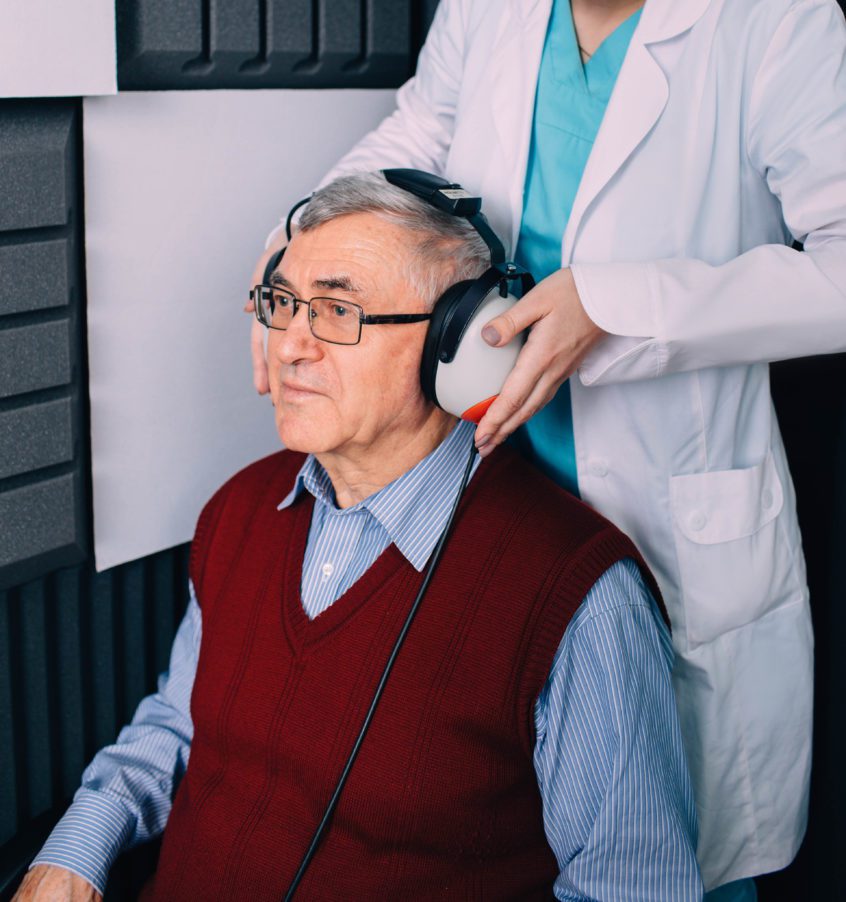With the holidays behind us, did you notice you had more problems than usual hearing friends and family, especially on Zoom or conference calls? Or have you had trouble hearing the television and you’ve found the volume creeping up? Has it been more difficult to hear or understand others when they are wearing masks?
If so, you might want to make hearing your best your 2021 New Year’s Resolution. Unlike dieting or exercising, it’s a pretty easy resolution to keep.
Start with getting a comprehensive hearing evaluation. Though there are no firm guidelines on the age at which you should start having your hearing checked, many organizations advocate this should occur beginning at age 50, especially if you’ve been exposed to loud noises throughout your career, like machinery, or via hobbies, like hunting.
It’s a great idea to make a regular hearing evaluation a habit, like your other routine health checks at the dentist, eye doctor or physician for a physical, and the start of the year is a great time to start this habit.
What’s the First Step?
If this is the first time you’ve ever had your hearing checked, it’s a good idea to see a hearing professional, like an audiologist. An audiologist is a doctoral-level professional who specializes in the diagnosis and non-medical treatment of hearing loss, tinnitus and balance disorders.
Audiologists receive extensive education in hearing and balance disorders. These professionals have earned postgraduate masters and/or doctoral degrees. A doctoral degree is now required for graduates practicing after 2012. Look for the initials Au.D., (Doctor of Audiology – clinical degree); or Ph.D. (Doctor of Philosophy – research and/or clinical research degree); to designate doctoral training.
Many audiologists, including all of the audiologists with Associated Audiologists, also have earned a Certificate of Clinical Competency in Audiology, indicated by the initials CCC-A after their names. This is a voluntary certificate issued by the American Speech-Language-Hearing Association (ASHA). Professionals who have been awarded the CCC-A have completed a rigorous academic program and a supervised clinical experience and have passed a national examination.
Hearing Evaluations
Let’s be clear. If you’ve had a free hearing screening offered through a newspaper ad or direct mail, you probably didn’t have a comprehensive hearing evaluation. A screening is a quick process that only takes a few minutes and just gives you an idea of whether you might have hearing loss, isn’t diagnostic and may miss important indicators best captured by a diagnostic evaluation.
For accuracy, a diagnostic hearing evaluation should be conducted in a sound-treated room using special earphones and equipment that has been calibrated to national standards. The hearing evaluation begins with a thorough discussion about your symptoms, medical history, medication review and any other concerns you may have. Depending on your hearing loss symptoms and case history, the audiologist may perform several different tests, which may include the following:
- Otoscopic examination to evaluate the status of your outer ear, ear canal, and eardrum.
- Tympanometry/Immittance testing to reveal the status of your middle ear system.
- Air conduction and bone conduction threshold testing to determine the softest sounds you can hear at different frequencies. This testing also reveals the type, degree, and configuration of your hearing loss. It is more than a hearing screening.
- Word recognition testing to assess your ability to understand speech when the volume of the speech signal is adequate for your level of hearing.
- Otoacoustic emission testing to differentiate sensory (inner ear) from neural (nerve) hearing loss.
- Loudness discomfort testing to measure your ability to tolerate loud sounds and identify the presence of decreased sound tolerance.
This entire process could take as long as an hour to an hour and a half. Following the testing, the audiologist will explain the results to you, usually in the form of an audiogram, and will answer any questions you may have. An audiogram is a graph which gives a detailed description of your hearing ability and which can be described as a picture of your sense of hearing.
If the results indicate your hearing is within normal ranges, the audiologist will likely recommend a follow-up schedule that’s appropriate to monitor your hearing, depending on the test findings, as well as your age and general health.
If the audiologist finds you have a hearing loss, they will offer more information about your hearing loss, and can make recommendations for hearing aids based on your needs, lifestyle and budget.
Remember, this is the best way to determine whether you have a hearing loss, and if you do, the best way to find a solution. So start the year off right with a comprehensive hearing evaluation. In many cases, the cost may be covered by your insurance plan, after deductibles have been met.
The Associated Audiologists team can review your insurance benefits and can let you know what your plan will cover. This helps with budgeting for the coming year, especially if you have a flexible spending account or health savings plan that you would like to use to cover the cost of hearing aids, if they are recommended.



